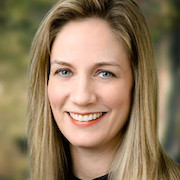Technology and Automation Series
Part 1: Crucial Factors in Making Genetic Counseling Available to All
According the U.S. Department of Labor, employment of genetic counselors is projected to grow 29 percent from 2016 to 2026, much faster than the average for all occupations.1 But will we have the genetic counselors to meet this explosion over the ensuing decade? Likely not.
Genetic counselors are trained professionals who have specialized education in genetics and counseling to provide the personalized help patients may need to make decisions about their genetic health. Today, there are close to 5,000 certified genetic counselors in the world.2 They are experts in clinical genetics, genetic testing technology, and how test results affect individuals and their families, both medically and psychologically. A significant number of healthcare providers, including physicians, do not have this specific training or experience. These specialized skills have become critical as the promise of personalized medicine is beginning to be realized.
Between 2014–17, there were approximately 75,000 genetic tests on the market, with about ten new tests entering the market daily.3 Direct to consumer (DTC) genetic testing exploded in 2017, with over 12 million individuals participating in this type of testing by 2018.4 The genetic testing market is set to exceed $22 billion USD by 2024, growing at a CAGR of 11.6%.5 With less than 5000 genetic counselors available, and none in many mid-sized and rural markets, patients are already waiting months for appointments. There are less than 50 genetic counseling graduate training programs in the U.S., accepting somewhere between 4-10 students per class. A quick run through the numbers conveys that we are already facing a huge shortage of providers to help the average person navigate their genetic health. Without intervention, the scarcity of these services will only increase.
The traditional delivery model of genetic counseling entails face to face communication between the genetic counselor and patient. The genetic counselor generally gathers a detailed family medical history, assesses the patient and their pedigree for risk, explains and offers genetic testing to the patient (if available), and may coordinate the ordering of the test. Post-test genetic counseling, explaining the results, may also take place in person. This model is time consuming for genetic counselors, with the same information being communicated about the risks, benefits and limitations of the testing repeated at each session to gain the patient’s informed consent.
How can we streamline this process to make it more efficient, more patient-friendly, and less time consuming for these rare experts? Technology and automation are already providing solutions. A powerful example is the use of educational videos created by genetic counselors. These videos are used to educate patients about the risks, benefits and limitations of high-volume, routinely ordered genetic tests such as non-invasive prenatal screening (NIPS). These videos intentionally mimic in person sessions. The use of these videos, along with comprehension checks that test the patient’s understanding of the material, provides medical practices with consistency, greater patient access, efficiency, cost-savings, and sharable verification of patient comprehension.
These video modules enable signatures for pre-test informed consent to be captured from all patients electronically. Comprehension checks that follow the video education can be tailored to the provider and practice. For example, a threshold of 80% of questions answered correctly may be used to determine whether further action will be taken with a particular patient. Below this threshold, a healthcare provider from the client, or a genetic counselor from a remote service may be alerted and reach out to the patient directly.
We have become accustomed to this type of video education in other industries, such as the airline industry. Videos of flight attendants giving safety instructions prior to takeoff are used routinely and have largely replaced in-person safety education. This has freed up flight attendants to focus on more immediate matters relating to passengers that require their psychosocial skills and training. It has also made safety instructions thorough and consistent on every flight. This automated means of educating passengers has become generally accepted, and it does not offer the additional advantage of quantifying passenger comprehension, as genetic counseling video education can.
In Part 2 of this series on technology and automation, we will present a specific example of an automated genetic counseling workflow and the time/cost savings it achieved for a large medical practice. We will discuss how the automation enabled greater consistency, convenience and comprehension for patients. Return to Metis on the Move shortly to learn more about this automation in practice!
References:
1. https://www.bls.gov/ooh/healthcare/genetic-counselors.htm
2. https://www.nsgc.org/page/whoaregcs
3. https://www.ncbi.nlm.nih.gov/pmc/articles/PMC5987210/
4. https://www.technologyreview.com/s/610233/2017-was-the-year-consumer-dna-testing-blew-up/
5. https://www.gminsights.com/industry-analysis/genetic-testing-market
Kristina Habermann, MS, CGC, MBA
Kristina is a board-certified genetic counselor and a long-time enthusiast of the use of genetics to improve patients’ health and lives. She has practiced as a genetic counselor and worked in Sales and Marketing educating clinicians and patients about the risks and benefits of genetic testing; ranging from prenatal to cancer to pharmacogenetic testing in psychiatry. She particularly enjoys writing about genetics and genetic counseling and is currently the Assistant Program Director of the Genetic Counseling Graduate Program at LIU Post.


